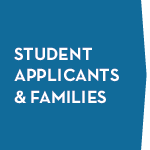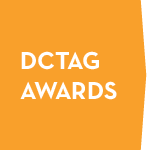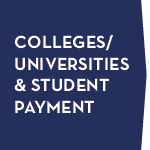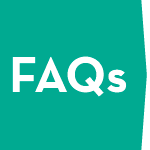Haga clic aquí para ver esta página en español.
ይህንን ገጽ በአማርኛ ለማየት እዚህ ይጫኑ።
College and University Program Eligibility
The DC Tuition Assistance Grant (DCTAG) provides grants of up to $15,000 toward the difference between in-state and out-of-state tuition at public colleges and universities (two-year and four-year) and up to $3,750 per academic year toward tuition at Historically Black Colleges and Universities (HBCUs) nationwide, and private colleges and universities within the District of Columbia metropolitan area.
| For public colleges and universities in the US, Guam and Puerto Rico | For four-year private HBCUs, nationwide, and private, not-for-profit colleges and universities in the District of Columbia metropolitan area |
|---|---|
|
DCTAG awards may be up to $15,000 per academic year toward the difference between in-state and out-of-state tuition (awards will be reduced for less than full-time enrollment). |
DCTAG awards may be up to $3,750 per academic year (awards will be reduced for less than full-time enrollment). |
| The $15,000 maximum in this case may be distributed to your institution based on the academic calendar (semester, or quarters). | The maximum will be distributed in this case as up to $1,875 per semester. |
| For a semester, the maximum award is up to $7,500. | The lifetime maximum in this case is $18,750. |
| For quarter-based systems, the maximum is up to $5,000 per quarter with a total maximum of $15,000. | |
| The lifetime maximum in this case is $75,000 | |
| *Please note: While colleges and universities may use a quarter-based system (fall, winter, spring, summer) students are not generally expected to attend the summer quarter, so awards are distributed in thirds. The annual maximum award amounts and lifetime maximum amounts remain the same. For example, the maximum award amounts would be up to $5,000, $5,000, and $5,000 for the three quarters totaling $15,000. | |
*Please note: While colleges and universities may use a quarter-based system (fall, winter, spring, summer) students are not generally expected to attend the summer quarter, so awards are distributed in thirds. The annual maximum award amounts and lifetime maximum amounts remain the same. For example, you will not receive four payments totaling $13,332 in one academic year.
In all situations, DCTAG recipients are limited to a maximum of six years of receiving awards.
College costs and your DCTAG award may change based on a few things – tuition amount, expected family contribution, and your enrollment level (full-time or part-time, as there is no eligibility below half-time).
Study Abroad Programs
All of following criteria must be met:
- Student must be enrolled at least half time,
- Student must be enrolled at home institution,
- If the student is enrolled at the study abroad school, the student will not be eligible for funding.
- College must have an in/out state cost,
- At Private colleges- the in state and out of state policy would not pertain in these situations.
Online Programs are eligible if:
- Courses are taken at the home institution;
- There is both an in- and out-of-state tuition charge;
Online Programs are ineligible for DCTAG funding if:
- There is a flat tuition charge for the course;
- The courses involve a transfer of credit from the program to the home institution which is not a DCTAG-eligible institution;
- The online classes are charged at the in-state tuition rate;
- They are non-accredited online classes;
Mini-Terms
DCTAG awards cannot pay for mini-terms.
Winter Terms/Quarter Terms
While colleges and universities may use a quarter-based system (fall, winter, spring, summer) students are not generally expected to attend the summer quarter, so awards are distributed in thirds. The annual maximum award amounts and lifetime maximum amounts remain the same. For example, the maximum award amounts would be up to $5,000, $5,000, and $5,000 for the three quarters totaling $15,000.
Summer Terms
If you have not yet received the annual maximum award for your institution type, you may be eligible to receive DCTAG funding for tuition covering summer courses.
Please note: DCTAG is a federally funded program, so the funds for DCTAG awards are subject to annual appropriation as approved and provided by the District of Columbia and the United States Federal Government.
If you have any questions, please contact your DCTAG advisor.
Eligible DCTAG School Types
DCTAG eligible institutions are:
- Public colleges and universities throughout the US;
- Private Historically Black Colleges and Universities (HBCUs) throughout the US;
- Private, nonprofit colleges and universities in the District of Columbia metropolitan area.
- Colleges and universities are required to be accredited and Title IV eligible to apply for potential DCTAG program participation.
Please see the list of eligible schools that have a signed Participation Program Agreement (PPA) with the DCTAG program. The list of schools eligible for DCTAG funding is updated once a year.
If you do not see the institution you attend or would like to attend in the list, and it falls within an eligible category, please contact the DCTAG Director, Melanie Fleming, at [email protected], or at (202) 741-6406.
Institutions participating in the DCTAG program may verify a student’s DCTAG program eligibility by accessing the DC OneApp.
Types of Institutions of Higher Education
Public Institutions
Eligible DCTAG students may use DCTAG funding to attend any one of the more than 2,500 public colleges and universities in the nation. The DCTAG award is paid directly to the institution and helps pay the difference between the in-state and the out-of-state tuition (up to $15,000 per year). The distribution of DCTAG awards by academic term is described in the table above. There is a lifetime maximum of $75,000. Students must be enrolled on, at least, a half-time basis, and in good academic standing. DCTAG students may receive awards for a maximum of six years.
Private Institutions
Eligible DCTAG students may use DCTAG funding (up to $3,750 per academic year) at any private Historically Black College or University (HBCU) or private not-for-profit colleges and universities in the District of Columbia metropolitan area, which includes: the District of Columbia; the cities of Alexandria, VA, Falls Church, VA, and Fairfax, VA; and the counties of Arlington (Virginia), Fairfax (Virginia), Montgomery (Maryland), and Prince George's (Maryland). District of Columbia residents may not use DCTAG funds to attend any private institution outside the District of Columbia metropolitan area other than HBCUs. The distribution of DCTAG awards by academic term is described in the table above. There is a lifetime maximum of $18,750 for students attending private institutions. DCTAG students may receive awards for a maximum of six years.
Ineligible Institution Types
Proprietary Institutions
Eligible DCTAG students may not use DCTAG funding to attend proprietary institutions. Proprietary institutions refer to educational institutions operated by private, profit-seeking businesses.
Private institutions outside of the District of Columbia metropolitan area that are not HBCUs or the University of the District of Columbia, where District residents pay in-state tuition rates, are also not eligible for DCTAG funding.
DCTAG Program Participation Agreement (PPA)
In order to participate in the congressionally legislated and funded DCTAG, an eligible postsecondary institution must have a current DCTAG Program Participation Agreement (PPA) signed by the institution’s president, chief executive officer or chancellor and the authorized representative of the DCTAG program. Colleges and universities are required to be accredited and Title IV eligible to apply for potential DCTAG program participation.
By signing the PPA, the institution agrees to fully comply with the applicable laws, regulations and policies governing the DCTAG program. After being certified for participation, the institution must administer DCTAG funds in both a prudent and reasonable manner.
Please remember – colleges or universities participating in the DCTAG progam must adhere to the DCTAG PPA in which they agreed to: "Not impose any penalty, late fee, denial of classes or other institution facilities, or requirement that students borrow funds because of an inability to meet financial obligations to the institution as a result of not receiving forth coming DCTAG funds ..."
For more information on the PPA process, please contact the DCTAG Director, Melanie Fleming, at [email protected].
Contact
Service Contact: Melanie Fleming, DCTAG Director
Contact Email: [email protected]
Contact Phone: (202) 741-6406 or 1-877-485-6751
Related content: DC Tuition Assistance Grant (DCTAG)







